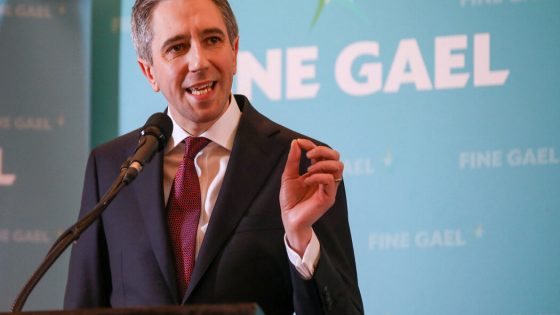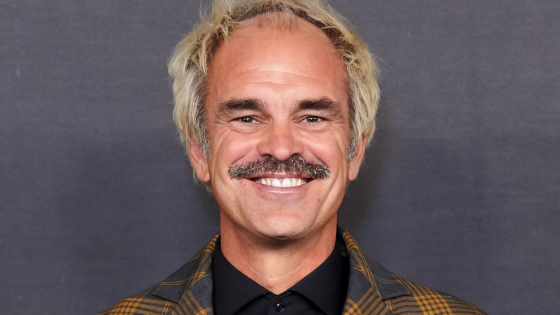Simon Harris was three years into a university degree when he dropped out in 2008.
A job had come up as a parliamentary assistant to an Irish senator, and Mr. Harris, an ambitious 20-year-old from a coastal town in County Wicklow, south of Dublin, saw “an opportunity to try and make a difference,” he later told HotPress, a Dublin-based magazine.
He never looked back. On Tuesday, at 37, he is set to become the Republic of Ireland’s youngest ever head of government, the culmination of a swift political rise to a post he has long aspired to.
“He’s always been hungry for this role,” said David Farrell, a professor of politics at University College Dublin, noting that although Mr. Harris was young, he was not lacking in political experience. “His career has been short, but it’s been meteoric.”
But Mr. Harris will reach the top at a moment when his center-right party, Fine Gael, has stagnated in the polls. And unless he can revive its fortunes, his time as premier may also be short-lived.
By the end of March 2025, Ireland will hold a general election that could see Sinn Féin, the Irish left-wing nationalist party that won the popular vote in 2020, garner enough seats to form a government. Support for traditional parties has waned in the wake of a cost of living crisis and a severe housing shortage.
Mr. Harris was propelled to the leadership of Fine Gael by the surprise resignation of his predecessor, Leo Varadkar, last month. The party governs Ireland in coalition with two others, and Mr. Harris will become taoiseach (pronounced TEE-shock), or prime minister because of a quirk of the coalition arrangement rather than a reflection of any national public endorsement.
Supporters say Mr. Harris — seen by many as an energetic and devoted politician — is up for the challenge of steering the government at a difficult moment. The senator who hired the 20-year-old Mr. Harris in 2008, Frances Fitzgerald, a Fine Gael member of the European Parliament, was the leader of the opposition in the upper house of Ireland’s legislature at the time. She became his longtime mentor.
“I think the reason that he has gone so far over such a relatively short period is that he has always believed in the power of politics,” she said, adding: “He doesn’t necessarily do the obvious. What I admire most is that he has the courage to go with his gut.”
‘Politicized at a young age’
The son of a taxi driver and a teaching assistant for children with special education needs, Mr. Harris grew up in County Wicklow, and set up an autism awareness charity when he was a teenager.
Speaking to the Irish broadcaster RTÉ in 2002 as a 15-year-old, he said that his younger brother, who is autistic, had inspired him to act.
“I was really frustrated, as that moody, opinionated teenager, with the lack of information around autism, I saw the stress and strain my parents went through,” Mr. Harris recalled in the 2022 HotPress interview. “I ended up finding myself politicized at a young age.”
He studied journalism and French before being hired by Ms. Fitzgerald, and then threw himself into local politics, becoming a county councilor at 22 and being elected to the Irish Parliament at 24. He was later appointed minister for health, a top cabinet post, in a major vote of confidence from Enda Kenny, then the taoiseach.
Mr. Harris will be confirmed to the top job in a vote in Parliament on Tuesday, but he has already been nicknamed the TikTok Taoiseach because of his enthusiastic posting on the social video app. His account has earned nearly two million likes since he started it in 2021.
In one shaky selfie, he invites viewers to join him for a quick chat while out for a walk. A supercut overlaid with the Red Hot Chili Peppers’ “Can’t Stop” was posted this week, showing Mr. Harris holding babies and shaking hands while campaigning.
The videos can feel earnest and occasionally awkward. But there is an informality about them that may resonate with voters, analysts said.
“He is an excellent communicator, very articulate, quick on his feet,” said Eoin O’Malley, an associate professor in political science at Dublin City University. “And I think that is what people see in him.”
An ambitious pragmatist
The millennial Mr. Harris has long embraced his youth as a selling point, analysts say. In 2018, while he was health minister, Ireland held a referendum to repeal the Eighth Amendment, the constitutional provision that effectively banned abortion. Mr. Harris won plaudits from many young people for his prominent efforts in favor of repeal.
Years earlier, he had expressed a desire to keep the anti-abortion measures intact, and Ms. Fitzgerald said his shift was not something that many would have anticipated. “I think I would describe him as someone who is very open to learning,” she said. “I think he listened to people, and he was learning firsthand as he listened to women’s stories.”
But that pragmatism can also be seen as a weakness, Professor O’Malley said, noting, “It’s still very hard to know exactly what he is or who he is.”
As public opinion has changed on some issues, Mr. Harris “moved fairly radically,” the professor said.
“That could be argued is a sign of somebody who’s kind of pragmatic and open, willing to change their mind about things,” Professor O’Malley added. “But others might say more cynically, that he doesn’t have strong principles or beliefs — basically, that he’s a fan of popularity rather than principle.”
A difficult task
The new premier will face steep challenges as he leads his party into local and European elections in June, and a general election next year.
Fine Gael came third in 2020, while Sinn Féin — which has historically called for uniting Northern Ireland, part of the United Kingdom, with the Republic of Ireland — won the popular vote for the first time, upsetting the longstanding dominance of Fine Gael and its traditional rival, Fianna Fáil.
Sinn Féin did not win enough seats to form a government though, so the rival parties formed a coalition alongside the Greens.
Polls suggest that Fine Gael’s appeal has dropped further since 2020 as the coalition has faced growing criticism over a housing shortage and a backlash over immigration.
The shift in leadership could yet have an energizing effect on the party, said Professor O’Malley, who likened the change to a new soccer coach coming in to take over a team. Recent polling suggested a small bump for the party since Mr. Harris became leader.
“To some extent, it doesn’t matter whether that person brings in new tactics or a new training regime, just being there kind of buoys everybody,” Professor O’Malley said, extending the soccer metaphor.
And while the verve of Mr. Harris’s predecessor, Mr. Varadkar, had palpably waned by the end of his tenure, Professor O’Malley said, “Nobody could argue that Simon Harris is low energy.”
Source Agencies


